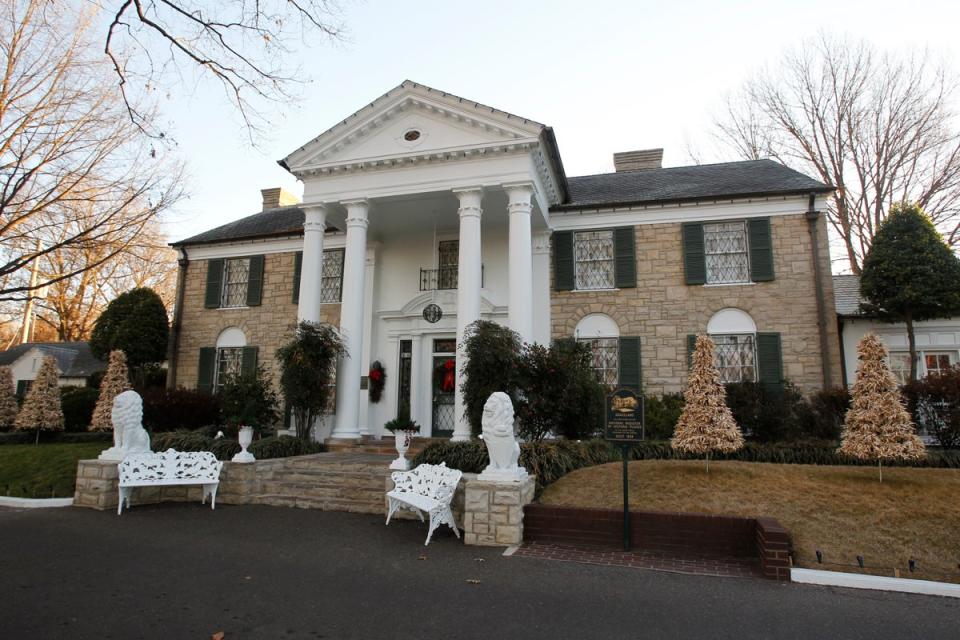‘Nigerian scammer’ takes credit for bizarre Graceland auction scare
A self-described scammer based in Nigeria has taken credit for a bizarre, failed attempt to auction off Elvis’ iconic Graceland property.
Earlier this month, a mysterious company with little paper trail, Naussany Investments and Private Lending, contacted Promenade Trust, which controls the Memphis estate, claiming it owed millions for failing to repay a loan.
Riley Keough, Elvis’ granddaughter who inherited Graceland after her mother Lisa Marie Presley died last year, sued Naussany alleging its documents were falsified. She also asked a judge to block the Graceland auction. The judge granted her request, putting a pause on the sale, one day before it was set to be finalized.
On Tuesday, the apparent perpertrator of the scheme was revealed when The New York Times reported that an individual based in Nigeria with a Naussany-associated email address contacted them and took credit for it.
The individual said he and his associates typically scam the vulnerable and elderly. The Times also reported that the email was written in Luganda, a language spoken in Uganda. “We figure out how to steal,” the individual told The Times. “That’s what we do.”

Experts also told the Associated Press that scammers often target people’s assets after they’re dead. “It’s very difficult for someone to say, ‘Well, no, I didn’t take out this loan, I didn’t sign these papers,’ when they’re dead,” Mark Sunderman, a University of Memphis real estate professor, told the AP.
The Independent was unable to verify specific details about Naussany Investments and Private Lending due to a lack of public records and unreliable contact information listed online.
No representative for the company appeared at a recent hearing over Graceland, however Naussany filed court papers denying Ms Keough’s allegations and asked the judge for more time to prepare a defense in the case, the Times reports.

Nikos Passas, a Northeastern University criminology and criminal justice professor, also told the AP the scammers likely knew that successfully auctioning off Graceland was impossible.
“The chance of succeeding in what they were trying to do — that is, to get the property auctioned off and get the proceeds and then use the money — doesn’t seem to be the actual intent, unless they are incredibly stupid,” Dr Passas said. “So, the question is then, ‘What was the intent, and who was behind it?’”


